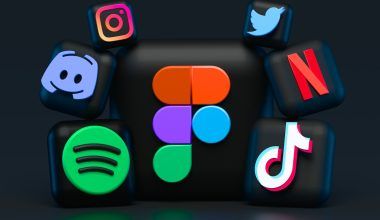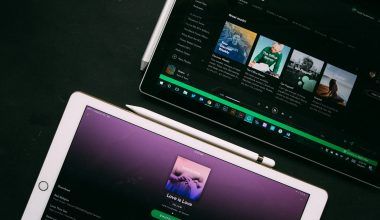The music industry is a complex and dynamic field that involves various stakeholders working together to create, promote, and distribute music. Understanding how the music industry works is essential for aspiring artists and those interested in pursuing a career in this vibrant sector. This comprehensive guide will explore the key components, processes, and players involved in the music industry, offering insights into how artists can navigate and succeed in this competitive environment.
Key Players in the Music Industry
To understand how does the music industry work, it’s important to recognize the key players involved:
- Artists: The creators of music, including singers, songwriters, and instrumentalists.
- Record Labels: Companies that sign artists, produce their music, and handle distribution.
- Music Producers: Professionals who oversee the recording process, ensuring the final product meets industry standards.
- Managers: Individuals or companies that handle the business aspects of an artist’s career, including bookings, promotions, and financial management.
- Promoters: Those responsible for organizing live performances and concerts.
- Music Distributors: Companies that ensure music reaches various platforms and stores for public consumption.
The Music Production Process
Understanding how does the music industry work involves delving into the music production process, which includes several key steps:
- Songwriting: The creative process of composing lyrics and melodies.
- Pre-Production: Planning and preparing for recording sessions, including arranging and rehearsing.
- Recording: Capturing the performance of the song in a studio environment.
- Post-Production: Editing, mixing, and mastering the recorded tracks to ensure the highest quality sound.
- Distribution: Delivering the final product to digital and physical platforms for public consumption.
Record Labels and Contracts
Record labels play a significant role in how the music industry works. They provide financial support for recording, marketing, and distributing music. Contracts between artists and record labels can vary, but they typically outline the terms of royalties, rights, and obligations. Artists must understand the implications of these contracts to protect their interests.
Types of Record Labels:
- Major Labels: Large companies like Universal Music Group, Sony Music, and Warner Music Group that have significant resources and global reach.
- Independent Labels: Smaller labels that often focus on niche markets and provide more creative freedom for artists.
- DIY (Do-It-Yourself): Artists who choose to self-release their music without the backing of a label.
Understanding Record Contracts:
- Advances: Money given to artists upfront, which is recouped from future earnings.
- Royalties: Payments to artists based on sales, streams, and other uses of their music.
- Exclusive Rights: Labels often have exclusive rights to an artist’s recordings for a specified period.
- Marketing and Promotion: Labels are typically responsible for promoting an artist’s music.
Music Distribution Channels
The music distribution process is crucial in understanding how does the music industry work. There are several channels through which music is distributed:
- Digital Distribution: Platforms like Spotify, Apple Music, and YouTube allow artists to reach global audiences.
- Physical Distribution: CDs, vinyl records, and other physical formats are still relevant in certain markets.
- Streaming Services: These platforms have revolutionized how music is consumed, offering subscription-based access to vast music libraries.
- Social Media: Platforms like Instagram, TikTok, and Twitter are essential for promoting music and engaging with fans.
Key Distribution Strategies:
- Aggregators: Companies like TuneCore, CD Baby, and DistroKid that help independent artists distribute their music to multiple platforms.
- Direct Deals: Some artists and labels negotiate direct deals with streaming services for better terms.
- Exclusive Releases: Offering music exclusively on one platform for a limited time to generate buzz.
The Role of Music Publishers
Music publishers help songwriters and composers manage their compositions and ensure they receive royalties for their work. They play a critical role in licensing music for various uses, including films, TV shows, commercials, and public performances.
Functions of Music Publishers:
- Song Placement: Helping place songs in movies, TV shows, and commercials.
- Royalty Collection: Ensuring songwriters receive payments for their work.
- Copyright Administration: Managing the rights to compositions and ensuring proper usage.
The Importance of Music Licensing
Music licensing is a fundamental aspect of how does the music industry work. It involves granting permissions for the use of music in various formats and settings. This includes synchronization licenses for visual media, mechanical licenses for physical and digital reproductions, and public performance licenses for live performances and broadcasts.
Types of Music Licenses:
- Synchronization License: Allows music to be used in visual media such as movies, TV shows, and commercials.
- Mechanical License: Covers the reproduction of music on physical media and digital downloads.
- Public Performance License: Required for playing music in public spaces, such as concerts, radio, and TV broadcasts.
- Print License: Covers the reproduction of sheet music.
Marketing and Promotion Strategies
Effective marketing and promotion are essential for an artist’s success. Understanding how does the music industry work includes knowing how to leverage various marketing strategies:
- Social Media Campaigns: Engaging with fans through regular posts, live sessions, and interactive content.
- Press Releases: Distributing news and updates to media outlets to generate publicity.
- Music Videos: Creating visually appealing content to accompany songs and attract viewers.
- Collaborations: Partnering with other artists and influencers to expand reach.
- Tours and Performances: Organizing live events to connect with audiences and promote new releases.
Digital Marketing Tools:
- SEO (Search Engine Optimization): Enhancing online presence through keyword optimization.
- Email Marketing: Sending newsletters and updates to a fan base.
- Online Ads: Using platforms like Google Ads and Facebook Ads to target specific audiences.
Revenue Streams in the Music Industry
To fully grasp how does the music industry work, it’s important to understand the various revenue streams available to artists:
- Sales and Streaming Royalties: Earnings from digital and physical sales and streams.
- Live Performances: Income from ticket sales, merchandise, and sponsorships.
- Publishing Royalties: Earnings from the use of compositions in various media.
- Merchandising: Revenue from selling branded merchandise like t-shirts, posters, and other products.
- Sponsorships and Endorsements: Financial support from brands in exchange for promotion.
Details on Revenue Streams:
- Digital Sales: Revenue from downloads and streaming, typically collected through digital platforms.
- Physical Sales: Earnings from CDs, vinyl, and other physical formats.
- Performance Royalties: Payments for live performances and radio airplay.
- Mechanical Royalties: Payments for the reproduction of music on physical media.
- Sync Licensing Fees: Payments for the use of music in visual media.
Challenges and Opportunities in the Music Industry
The music industry presents both challenges and opportunities for artists. Understanding how does the music industry work involves recognizing these factors:
- Challenges:
- Competition: The industry is highly competitive, with many artists vying for attention.
- Financial Risks: High costs associated with production, marketing, and touring.
- Piracy: Unauthorized distribution and copying of music.
- Changing Trends: Rapid changes in technology and consumer preferences.
- Opportunities:
- Global Reach: Digital platforms provide access to a global audience.
- Direct Fan Engagement: Social media allows artists to connect directly with fans.
- Innovative Revenue Models: New monetization strategies like crowdfunding and Patreon.
- Creative Freedom: Independent artists have more control over their music and career.
Tips for Aspiring Artists
Aspiring artists can benefit from understanding how does the music industry work and applying these tips:
- Develop Your Brand: Create a unique image and sound that sets you apart.
- Network: Build relationships with industry professionals, other artists, and fans.
- Stay Informed: Keep up with industry trends, news, and technological advancements.
- Be Persistent: Success in the music industry often requires perseverance and hard work.
- Utilize Resources: Take advantage of online tools, courses, and communities to enhance your skills and knowledge.
Additional Tips:
- Professionalism: Always conduct yourself professionally in all industry interactions.
- Legal Knowledge: Understand the legal aspects of the music business, including contracts and copyright laws.
- Financial Management: Keep track of your income and expenses to manage your finances effectively.
- Continuous Learning: Stay open to learning new skills and adapting to changes in the industry.
The Future of the Music Industry
The future of the music industry is shaped by technological advancements and changing consumer behaviors. Understanding how does the music industry work also involves anticipating future trends:
- Streaming Dominance: Streaming will continue to dominate music consumption, with more personalized and interactive experiences.
- AI and Automation: Artificial intelligence will play a larger role in music production, distribution, and marketing.
- Virtual Reality (VR) and Augmented Reality (AR): VR and AR will create new immersive experiences for music fans.
- Direct-to-Fan Models: More artists will adopt direct-to-fan models, using platforms like Patreon to connect with supporters.
- Blockchain Technology: Blockchain may revolutionize music rights management and royalty distribution.
Embracing Innovation:
- AI in Music Production: Tools like AI mastering services and automated composition software.
- VR Concerts: Virtual concerts offering fans new ways to experience live performances.
- NFTs (Non-Fungible Tokens): Using NFTs to sell unique digital assets and experiences.
Conclusion
Understanding how does the music industry work is essential for anyone looking to succeed in this dynamic field. By recognizing the key players, processes, and strategies involved, aspiring artists can navigate the industry more effectively and maximize their chances of success. The music industry offers numerous opportunities for those who are passionate, dedicated, and willing to adapt to its ever-changing landscape.
For further reading, explore these related articles:
- What Does a Sound Engineer Do in the Music Industry?
- The Role of Journalism in the Music Industry: Unveiling Truths and Celebrating Art
- Creating an Impressive Music Industry Resume: A Comprehensive Guide
For additional resources on music marketing and distribution, visit Deliver My Tune.






